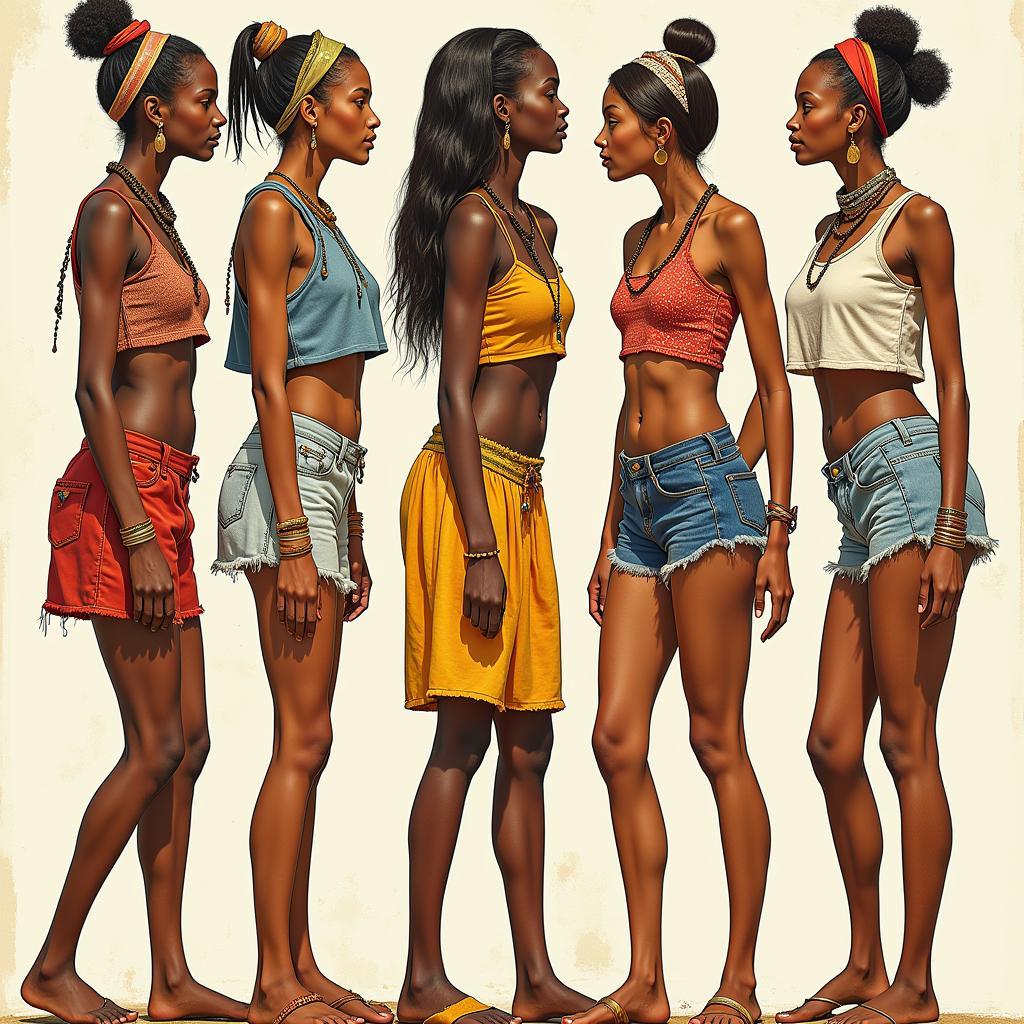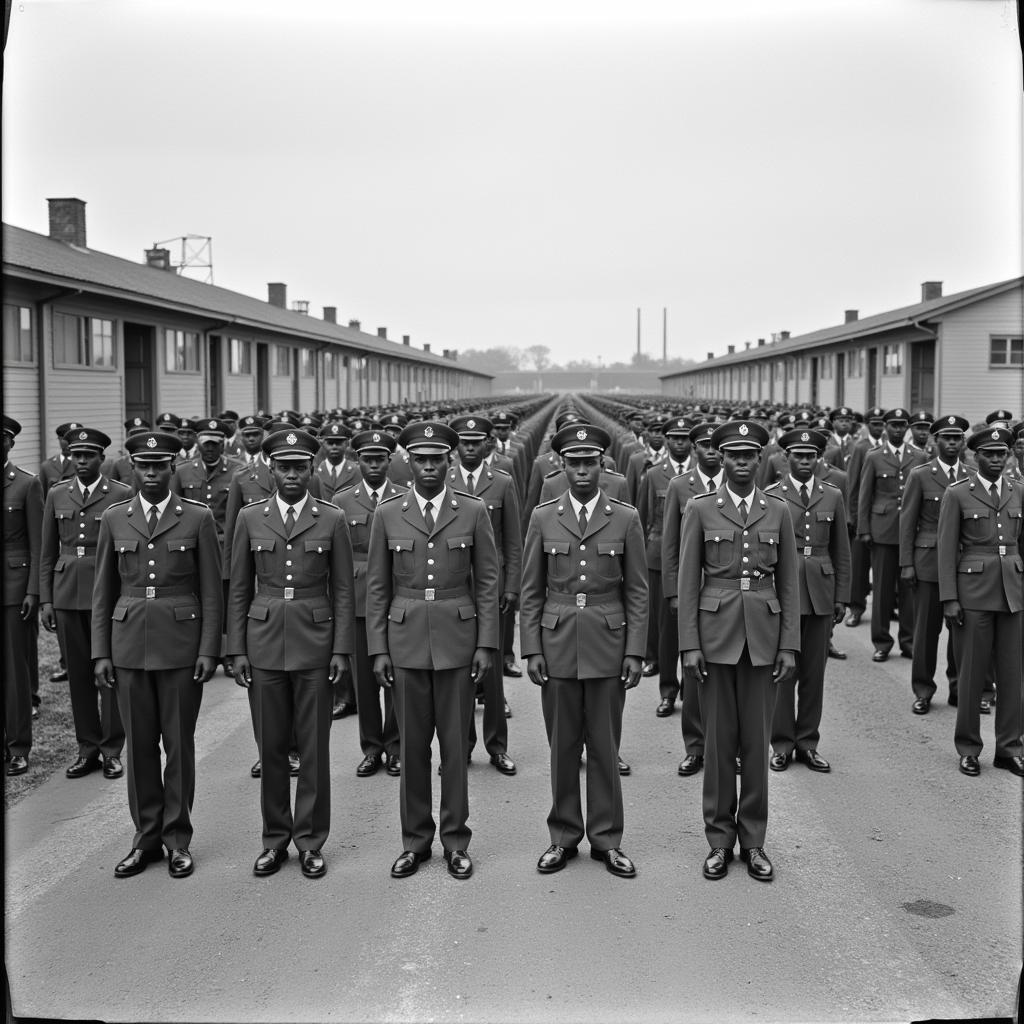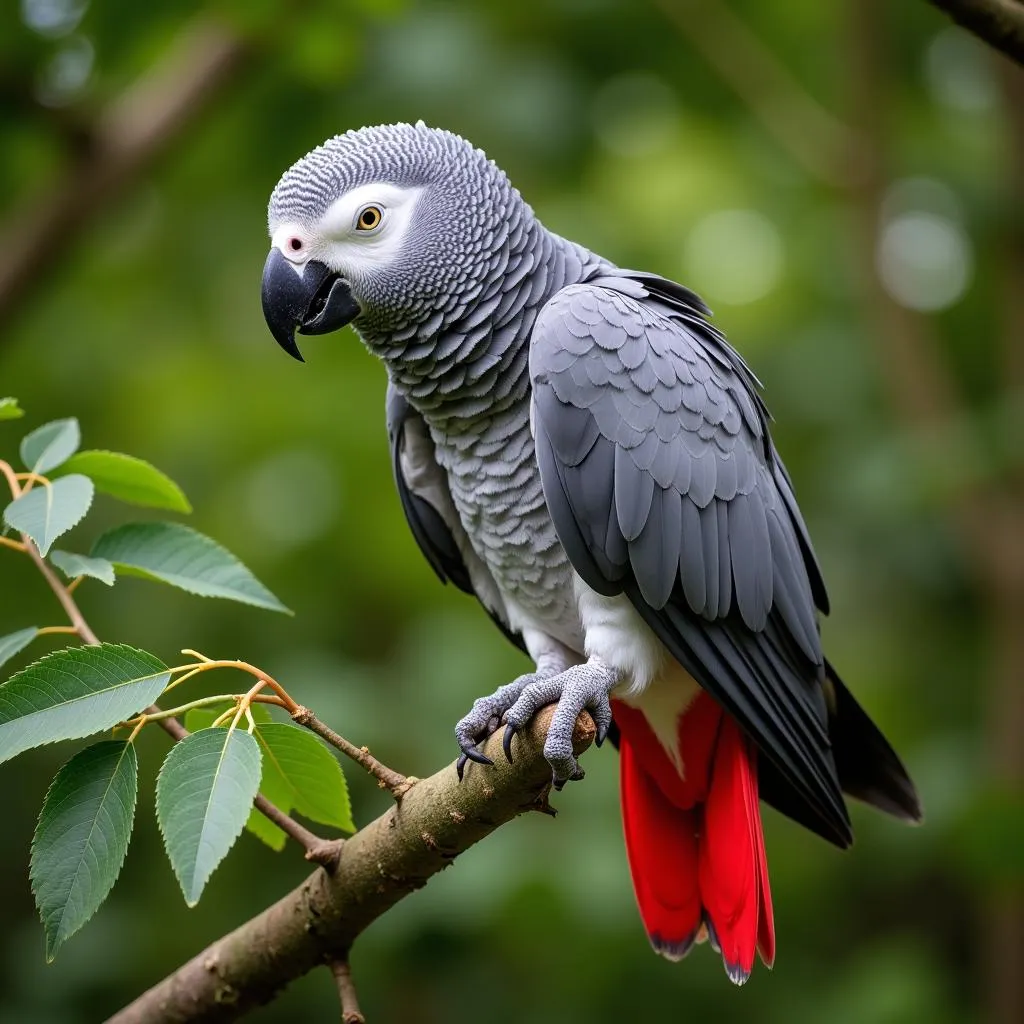Unpacking African Gender Studies: Beyond the Binary
African Gender Studies is a vibrant and complex field that challenges Western feminist frameworks and explores the intricate tapestry of gender relations within the diverse cultures and societies across the African continent. It delves into how gender intersects with other social categories such as ethnicity, class, sexuality, and religion, shaping experiences and power dynamics.
Challenging Western Perspectives on Gender
One of the core tenets of African Gender Studies is the critique of Western-centric approaches to gender. Often, these perspectives present a monolithic view of “African culture” and impose binary notions of male and female, overlooking the fluidity and multiplicity of gender identities and expressions that have long existed in many African societies.
 Precolonial African Gender Roles
Precolonial African Gender Roles
For instance, pre-colonial Africa saw the presence of influential female chiefs, warriors, and spiritual leaders who wielded significant authority and challenged patriarchal structures. Concepts like “womanhood” and “manhood” were often defined not solely by biological sex but through social roles, achievements, and spiritual connection.
Colonialism and Its Impact on Gender Relations
African Gender Studies also delves into the profound impact of colonialism on gender relations. Colonial powers often imposed their own patriarchal norms and legal systems, disrupting existing social structures and exacerbating gender inequalities. Women’s access to land, resources, and decision-making power was significantly curtailed, leading to their economic marginalization.
The Rise of African Feminist Thought
In response to these historical injustices, African feminist scholars and activists have emerged, offering critical perspectives on gender and development. They argue for the decolonization of knowledge production and advocate for gender equality within the context of African realities.
Key Themes in African Gender Studies
African Gender Studies encompasses a wide range of themes, including:
- Women in the liberation struggles: Examining the active roles women played in anti-colonial movements across the continent, challenging the often male-dominated narratives of these struggles.
- The impact of globalization and neo-liberalism on gender relations: Analyzing how global economic policies and trends impact women’s livelihoods, labor, and access to resources.
- The intersectionality of gender with other social identities: Exploring how gender intersects with factors like ethnicity, class, sexuality, disability, and religion to shape experiences of privilege and oppression.
- Gender-based violence: Addressing the pervasive issue of violence against women and girls in various contexts, including domestic violence, sexual assault, and harmful traditional practices.
- Men and masculinities: Examining the construction of masculinities and how they contribute to gender inequalities. This includes exploring alternative models of masculinity that challenge patriarchal norms.
African Gender Studies: A Reader
To learn more about this multifaceted field, you can refer to resources like “African Gender Studies: A Reader” which offers a comprehensive collection of essays and articles by leading scholars in the field.
Engendering African Social Sciences
Another valuable resource is “African Gender Studies: A Reader Engendering African Social Sciences“, which specifically focuses on the integration of gender perspectives into various social science disciplines.
The Future of African Gender Studies
African Gender Studies is a dynamic field that continues to evolve, pushing boundaries and challenging conventional wisdom. As we move forward, it’s crucial to center African voices and experiences in the conversation on gender equality and social justice.
By understanding the nuances of African Gender Studies, we can work towards a more equitable and just future for all.
FAQ
1. What is the main difference between African Gender Studies and Western Feminism?
While both share the goal of gender equality, African Gender Studies critiques the universalizing tendencies of Western feminism and its often limited understanding of the complexities of gender relations in non-Western contexts.
2. How does African Gender Studies address LGBTQ+ issues?
African Gender Studies recognizes the diversity of sexual orientations and gender identities within African societies and works to deconstruct colonial legacies that have often criminalized and marginalized LGBTQ+ individuals. This includes exploring indigenous African concepts of gender and sexuality that existed prior to colonial influence.
3. What are some of the challenges facing African Gender Studies?
Some challenges include limited funding for research and activism, ongoing resistance to gender equality from conservative forces, and the need for greater representation and inclusion of diverse voices within the field itself.
4. How can I learn more about African Gender Studies?
There are numerous books, articles, documentaries, and online resources available. Attending conferences and workshops on African Gender Studies can also provide valuable insights.
Need More Information?
For further assistance and information, please don’t hesitate to contact us:
Phone: +255768904061
Email: [email protected]
Address: Mbarali DC Mawindi, Kangaga, Tanzania
Our dedicated team is available 24/7 to answer your queries and provide support.

